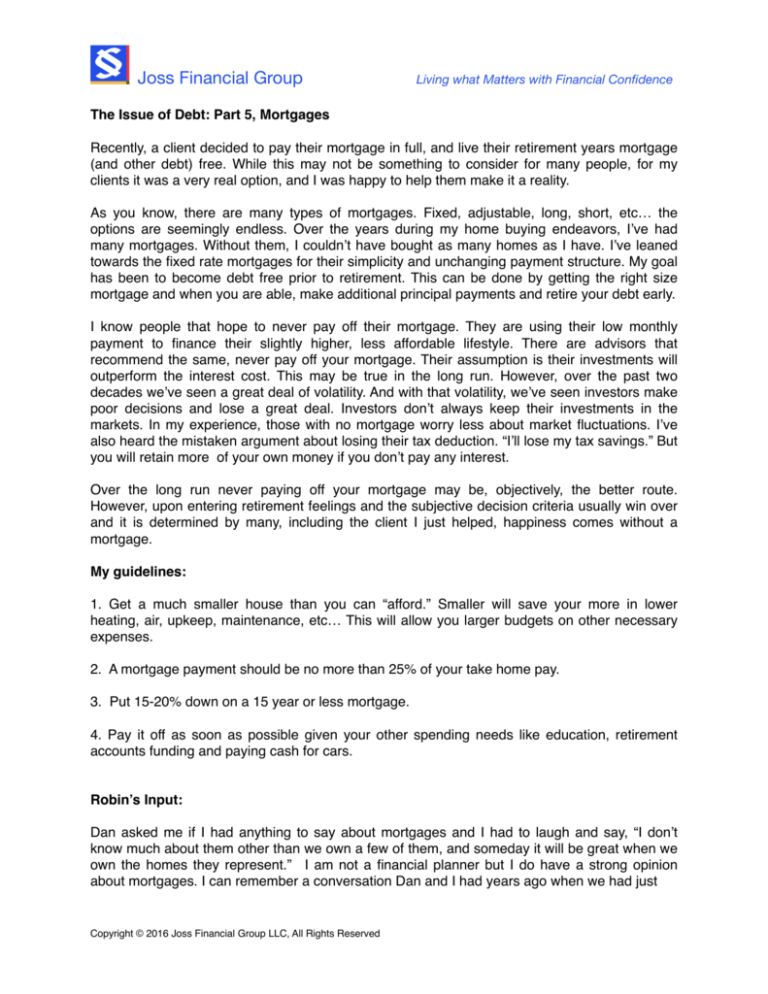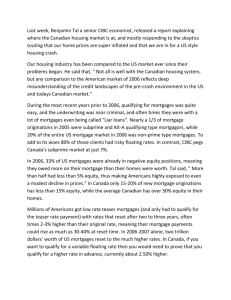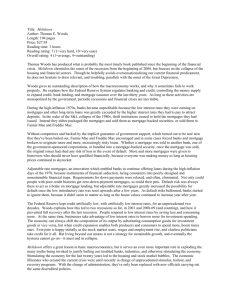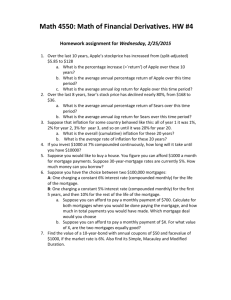
Joss Financial Group
Living what Matters with Financial Confidence
The Issue of Debt: Part 5, Mortgages
Recently, a client decided to pay their mortgage in full, and live their retirement years mortgage
(and other debt) free. While this may not be something to consider for many people, for my
clients it was a very real option, and I was happy to help them make it a reality.
As you know, there are many types of mortgages. Fixed, adjustable, long, short, etc… the
options are seemingly endless. Over the years during my home buying endeavors, I’ve had
many mortgages. Without them, I couldn’t have bought as many homes as I have. I’ve leaned
towards the fixed rate mortgages for their simplicity and unchanging payment structure. My goal
has been to become debt free prior to retirement. This can be done by getting the right size
mortgage and when you are able, make additional principal payments and retire your debt early.
I know people that hope to never pay off their mortgage. They are using their low monthly
payment to finance their slightly higher, less affordable lifestyle. There are advisors that
recommend the same, never pay off your mortgage. Their assumption is their investments will
outperform the interest cost. This may be true in the long run. However, over the past two
decades we’ve seen a great deal of volatility. And with that volatility, we’ve seen investors make
poor decisions and lose a great deal. Investors don’t always keep their investments in the
markets. In my experience, those with no mortgage worry less about market fluctuations. I’ve
also heard the mistaken argument about losing their tax deduction. “I’ll lose my tax savings.” But
you will retain more of your own money if you don’t pay any interest.
Over the long run never paying off your mortgage may be, objectively, the better route.
However, upon entering retirement feelings and the subjective decision criteria usually win over
and it is determined by many, including the client I just helped, happiness comes without a
mortgage.
My guidelines:
1. Get a much smaller house than you can “afford.” Smaller will save your more in lower
heating, air, upkeep, maintenance, etc… This will allow you larger budgets on other necessary
expenses.
2. A mortgage payment should be no more than 25% of your take home pay.
3. Put 15-20% down on a 15 year or less mortgage.
4. Pay it off as soon as possible given your other spending needs like education, retirement
accounts funding and paying cash for cars.
Robin’s Input:
Dan asked me if I had anything to say about mortgages and I had to laugh and say, “I don’t
know much about them other than we own a few of them, and someday it will be great when we
own the homes they represent.” I am not a financial planner but I do have a strong opinion
about mortgages. I can remember a conversation Dan and I had years ago when we had just
Copyright © 2016 Joss Financial Group LLC, All Rights Reserved
Joss Financial Group
Living what Matters with Financial Confidence
become engaged, and how I hoped we would plan our finances around one salary because my
dream was to duck out of my nursing career when the babies came. A few months later he
purchased our first home based on his salary, while we saved all of my salary for vacations,
education, and long-term savings. This forethought afforded us relief in life’s setbacks, and
options while attaining our dreams. Life does hand us hard times such as we experienced when
we were starting our family. Between our two sons we had lost a baby at 20 weeks. I was on
bedrest for four weeks until the baby died in utero, and the grief that followed was intense. The
next baby was high risk, putting me at Rammstein Army Hospital for four weeks and more bed
rest. Because we had based our lifestyle and mortgage on one salary, I could concentrate on
my own recovery without the stress of earning a salary.
Life is expensive and unpredictable, but the best insurance you can give yourself is living below
your means. Couples who base their mortgage on 25% of one salary find the freedom to take a
lower paying position to advance a career- we see this often with folks going back and forth
between the government and private sectors. The “one salary” option gives a couple freedom to
take turns advancing their education while going part-time at work. And lastly, when starting a
family both men and women can take turns dipping in and out of their careers to take care of
babies. If you are single, look at Dan’s guidelines to base your mortgage on 25% of your take
home pay; to allow yourself relief when times are tough and freedom when life hands you
opportunities. Look at you life goals and ask yourself if a big mortgage will hinder any of those
plans.
Enjoy,
Dan and Robin Joss
Copyright © 2016 Joss Financial Group LLC, All Rights Reserved







